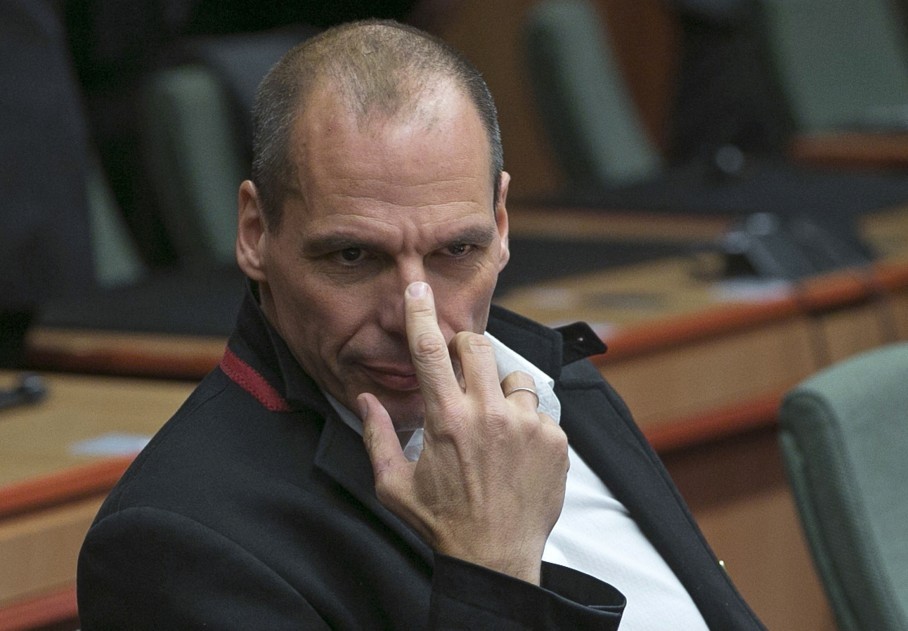By Eric Maurice, Euobserver
Greece has outlined reforms and suggested another aid plan ahead of a meeting of eurozone ministers on Monday (6 March) but negotiations are set to be difficult.
Greek Prime Minister Alexis Tsipras set the tone on Friday in an interview with Germany’s Der Spiegel
“The thriller we saw before 20 February will return”, warned the Greek leader, referring to last month’s frantic attempts to get Athens and its creditors to reach preliminary agreement.
Greek finance minister Yanis Varofakis sent a letter, seen by the Financial Times, to the president of the Eurogroup, Jeroen Dijsselbloem, outlining seven reform proposals ahead of Monday’s meeting.
These are meant to trigger a partial disbursement of the €7.2 billion loan prolongation agreed with the Eurogroup on 20 February.
The letter details measures to improve Greece’s budget management, tax collecting and public administration, fight tax evasion, raise state revenues and address the country’s humanitarian crisis.
It also suggests that both sides need to start looking at a new ‘arrangement’, to come after the end of the four-month prolongation of the current bailout.
“The Greek government believes that, very soon, the two sides ought to begin higher-level discussions regarding a ‘possible follow-up arrangement’,” says the letter.
This should take the form of a “contract for the recovery and growth of the Greek economy”, it continues.
The letter, however, was not sent to Eurozone member states representatives who met earlier this week.
This means Greek demands will not have been discussed before the Eurogroup meeting on Monday, reducing the chances for a decision to unblock the money Athens is expecting.
“Technical discussions have not yet commenced”, said an EU official Friday, adding that he was even less sure than before that they would start at the beginning of next week.
The official noted that the disbursement would anyway only come after the EU Commission, the European central bank and the International Monetary Fund (creditors known collectively as ‘the institutions’) have evaluated all the Greek proposals.
Discussions at political level will continue during the weekend to find some common ground and avoid a potentially disastrous new clash in Brussels.
PM Tsipras reportedly called EU Commission president Jean-Claude Juncker for help and tried to arrange a meeting Friday.
A meeting could take place next week although it was not clear Friday afternoon if it would take place before Monday.
The Greek government said “the (Eurogroup) meeting will discuss how Greece will use European funds to address the humanitarian crisis and unemployment.”
Bank of Greece governor Yannis Stournaras warned that success at Monday’s meeting was “crucial” for Greece.
The country is due to disburse €6 billion in March for debt repayments.
A first €310 million repayment to the IMF was done on Friday. But uncertainties remain on the true state of Greece’s finances.
“We have no information on the Greek government’s situation”, said the EU source on Friday.
In his Spiegel interview, Tsipras accused the European central bank of “still holding the rope we have around our necks”.
On Thursday night (5 March), the ECB refused to start accepting Greek state bonds as collateral for cash.
Such a move would have allowed the ECB to buy Greek debt on secondary markets and give Greece some financial breathing space.
At the same time, the ECB decided to increase by €500 million the limit of loans to Greek banks through the emergency liquidity assistance mechanism (ELA).
In a move to raise cash on its own, the Greek government announced it will auction €1 billion of three-month treasury bills next Wednesday (11 March).
In an almost similar move, it already raised €1.118 billion of six-month bills on Wednesday (4 March)
But there is speculation these amounts might not be enough to meet Greece’s needs.









